
More sentences

Now we will offer more sentences. We start by a sentence that describes a very important moment in the morning: It deals about drinking coffee.
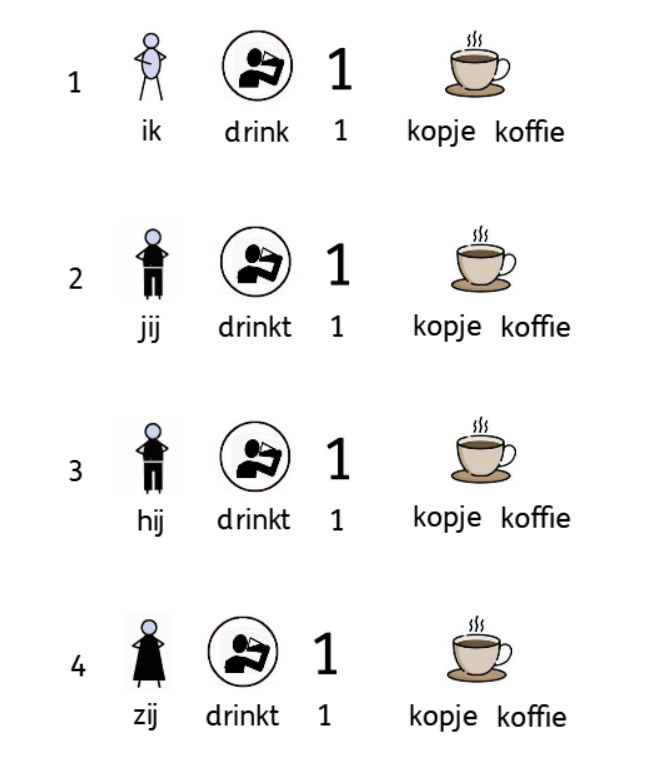
1 I drink 1 cup of coffee
2 you drink 1 cup of coffee
3 he drinks 1 cup of coffee
4 she drinks 1 cup of coffee
<<<
The next sentences demonstrate the plural form.
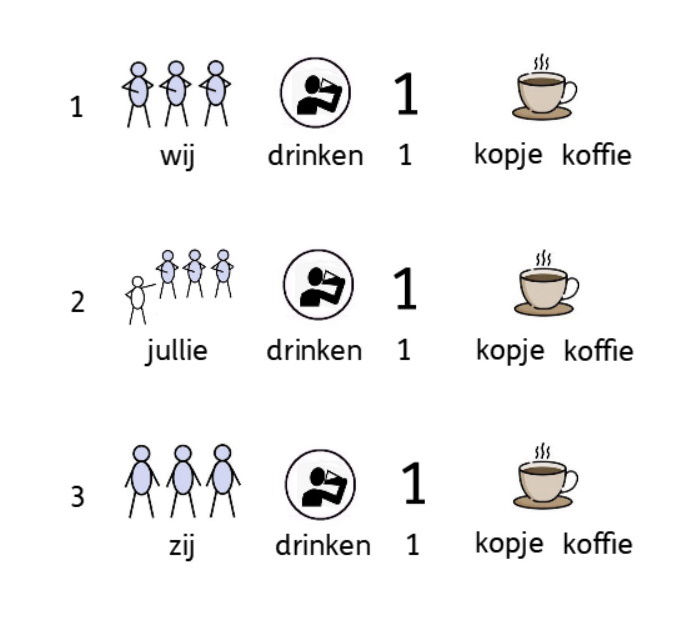
1 we drink 1 cup of coffee
2 you (all) drink 1 cup of coffee
3 they drink 1 kopje koffie
The original text of the course is written in English, and the English language does not differentiate between the singular and plural forms of "you." Therefore, "(all)" at line 2 is added to the text to force the translation to the plural form. This helps avoid confusion in languages that distinguish between singular and plural "you."
<<<
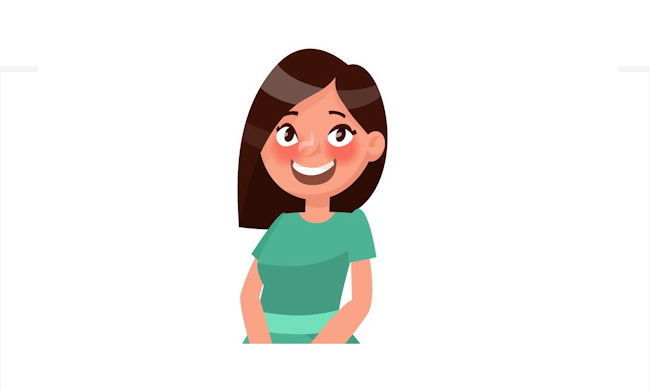
In order to ask for a cup of coffee, you can say "I want coffee". Although, also in Dutch this sentence is completely clear, it is better to use a more polite form:
"I'd like a cup of coffee".
Look at the next sentences that explain the difference between the two ways and how this is done in Dutch. We will see the Dutch word "graag" expressing that you really want it.
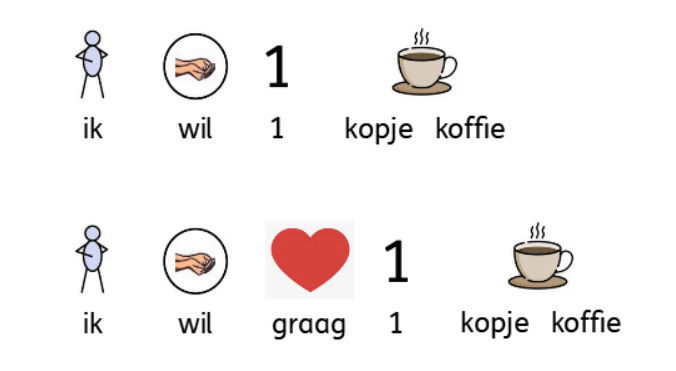
I want 1 cup of coffee
and now with the more polite form:
I'd like a cup of coffee
The symbol to indicate "with".
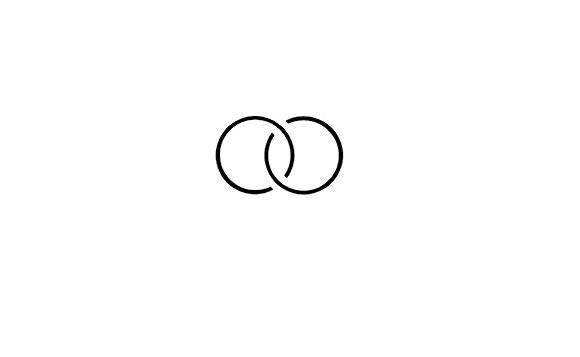
Usually we ask if people want milk and or sugar in their coffee.
This symbol with the 2 rings is used to indicate the word "with". You can remember it by thinking about the resemblance of a part of a chain (a chain connects and that is the meaning of "with").
<<<

This symbol is used to indicate the word "and". The symbol is also used in calculations and there it has the same meaning, for instance 1 + 3 = 4.
<<<
In practice, we say "1" when we mean only one cup. However, in everyday conversations, we use the word "een." This word is known as an article, and we will focus on these articles later. The pronunciation of this word is interesting. Look at the following examples. "1 cup of coffee" versus "a cup of coffee".

Now listen to the differences in pronunciation:
Notice, that according to the rules we just discussed the word "een" should be pronounced as:
so the same as number 1 sounds, but in practice people say "un":
You can say "I want" but a better, more polite way is by using "I'd like". Here some examples.
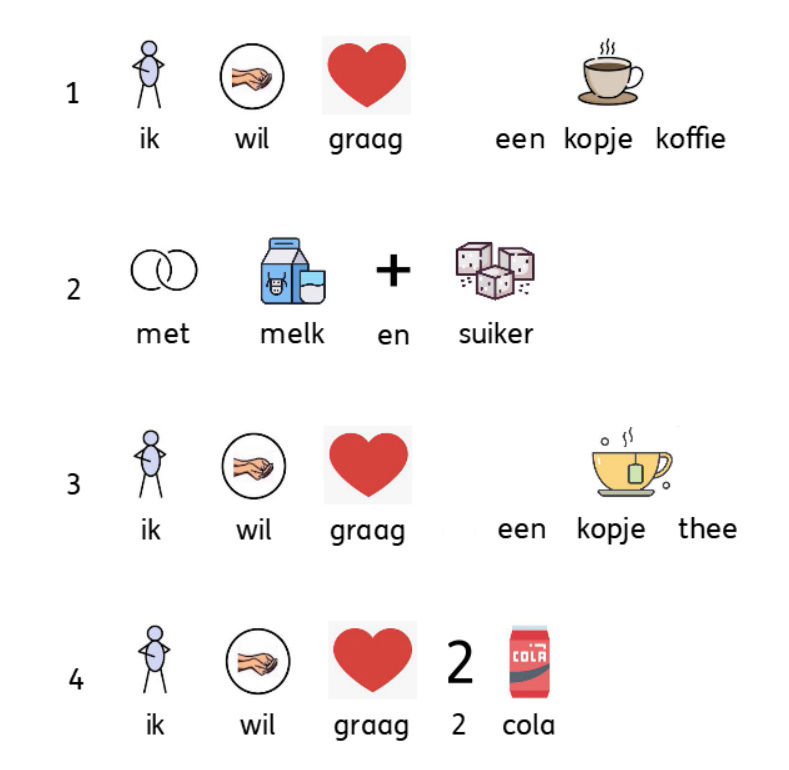
1 I'd like a cup of coffee
2 with milk and sugar
But of course you prefer tea.
3 I'd like a cup of tea
Or maybe, you prefer cola and if you are with another person, you can say:
4 I'd like 2 cola
<<<

The next sentences are obvious but we have to pay attention to the sentence with the question. Notice the change in word order "you eat" is switched to "eat you". That is a typical Dutch construction.
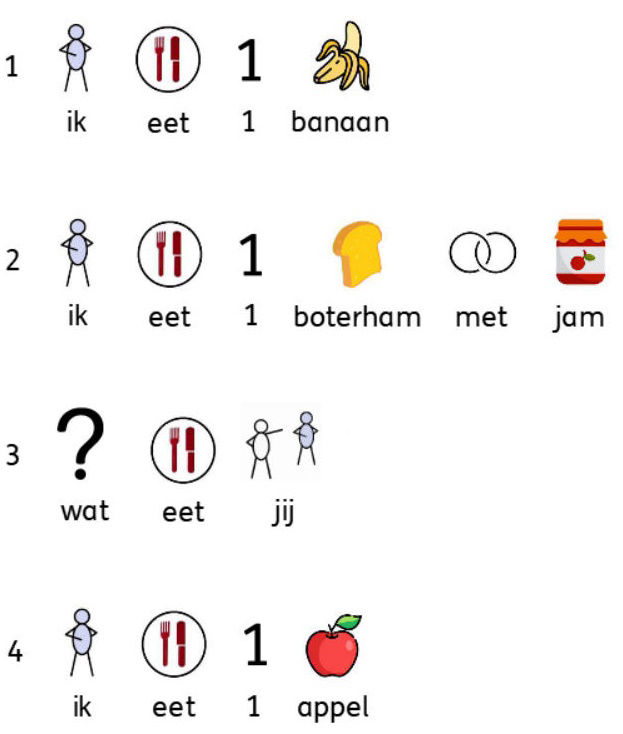
1 I eat 1 banana
2 I eat 1 slice of bread with jam?
3 what do you eat?
4 I eat 1 apple
<<<
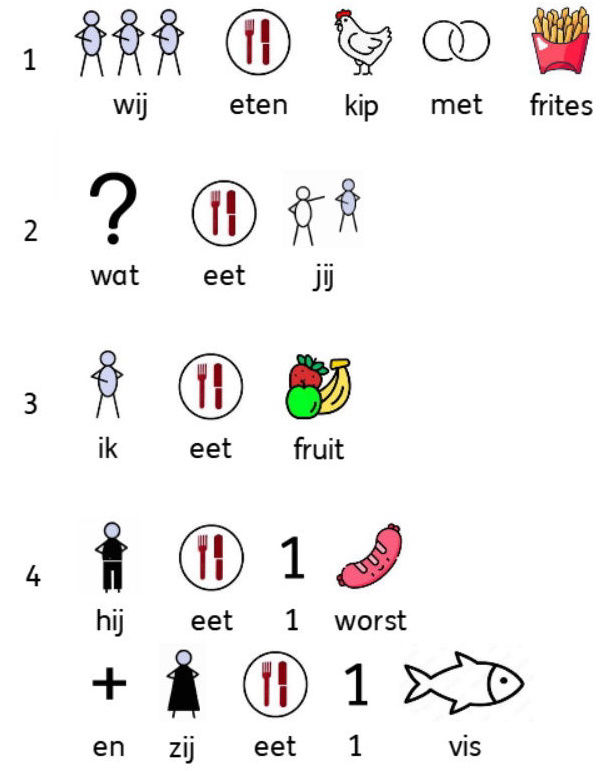
1 we eat chicken with fries
2 what do you eat?
3 I eat fruit
4 he eats 1 sausage and she eats 1 fish
<<<
In the next lesson, we will pay more attention to food and drinks. Here are some examples as a start.
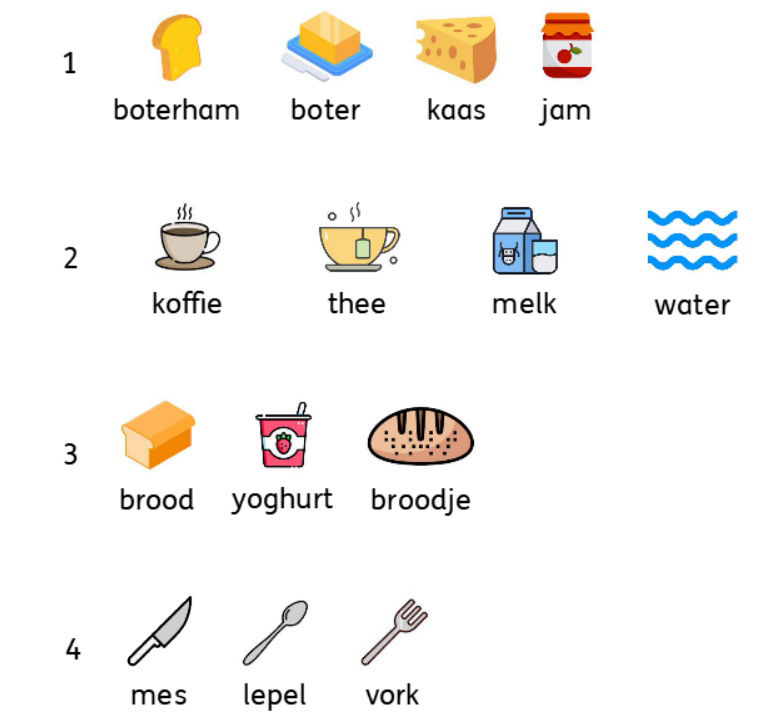
1 slice of bread, butter, cheese, jam
2 coffee, tea, milk, water
3 bread, yogurt, bun
4 knife, spoon, fork
<<<
TEST
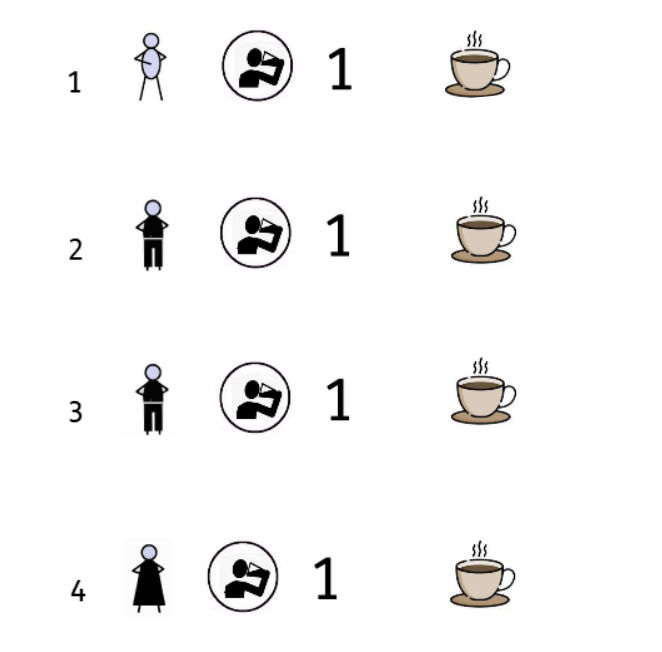
1 ?
2 ?
3 ?
4 ?
<<<
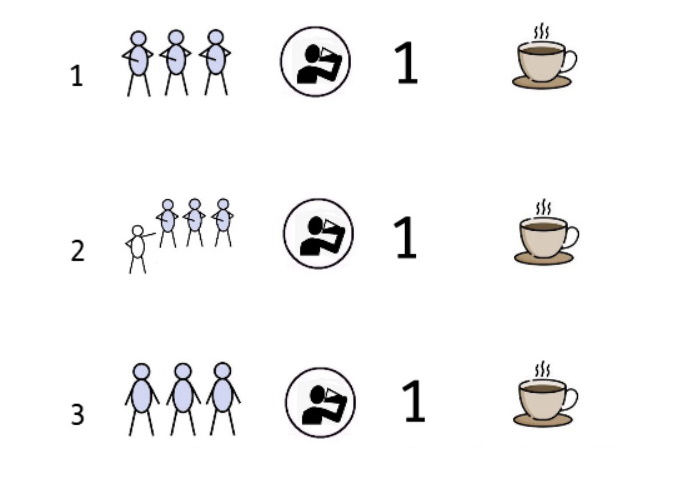
1 ?
2 ?
3 ?
<<<
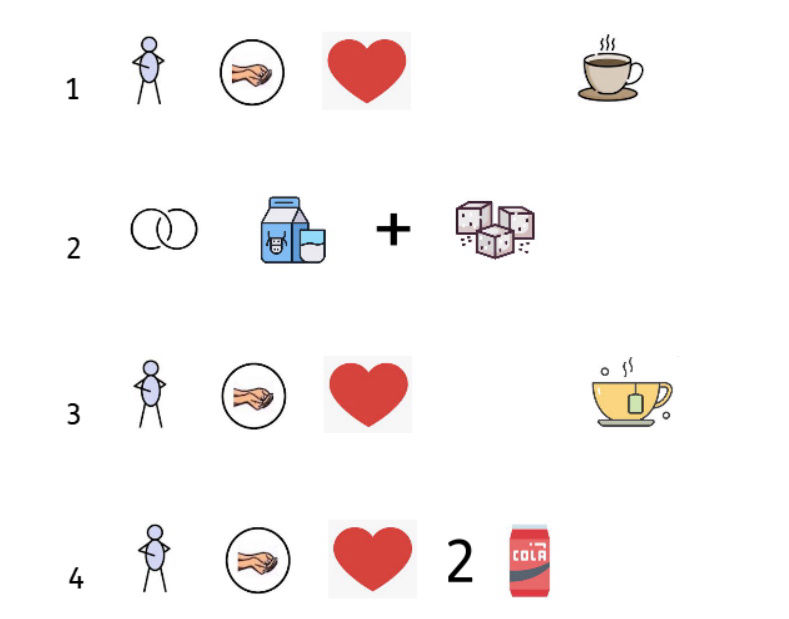
1 ?
2 ?
3 ?
4 ?
<<<
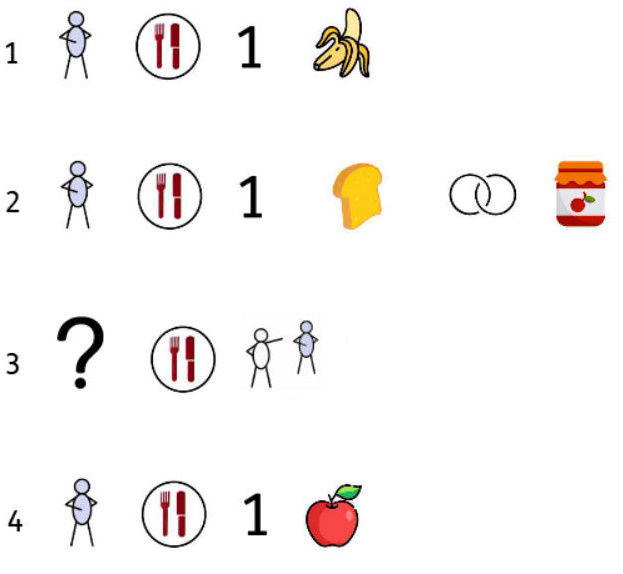
1 ?
2 ?
3 ?
4 ?
<<<
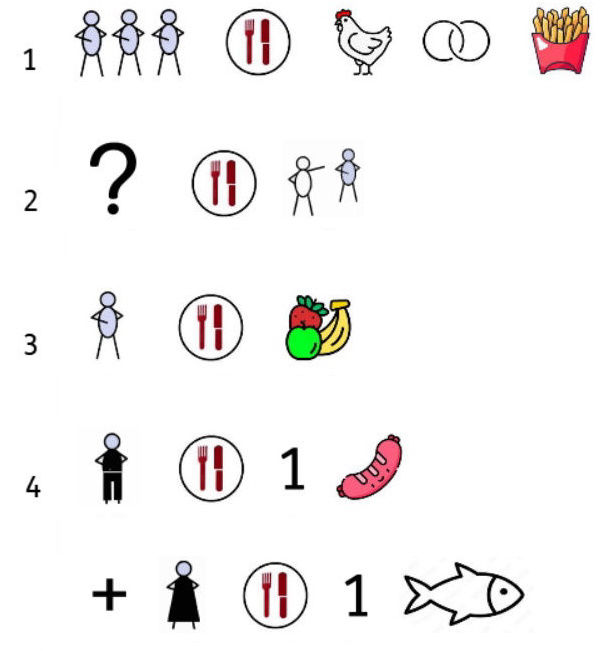
1 ?
2 ?
3 ?
4 ?
<<<
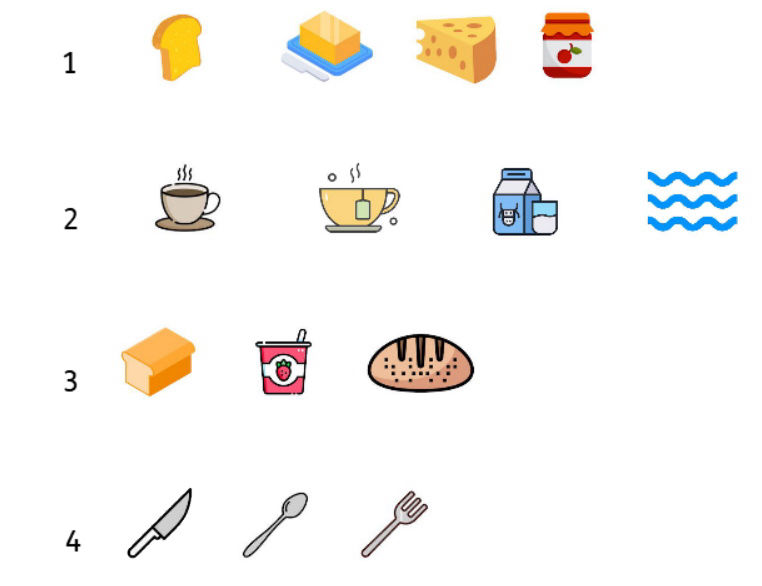
1 ?
2 ?
3 ?
4 ?
<<<

I just said that I like to play tennis. But there are more activities. First I show a video and than I tell you what activities I like by means of an illustration.
Built with Mobirise - Try it